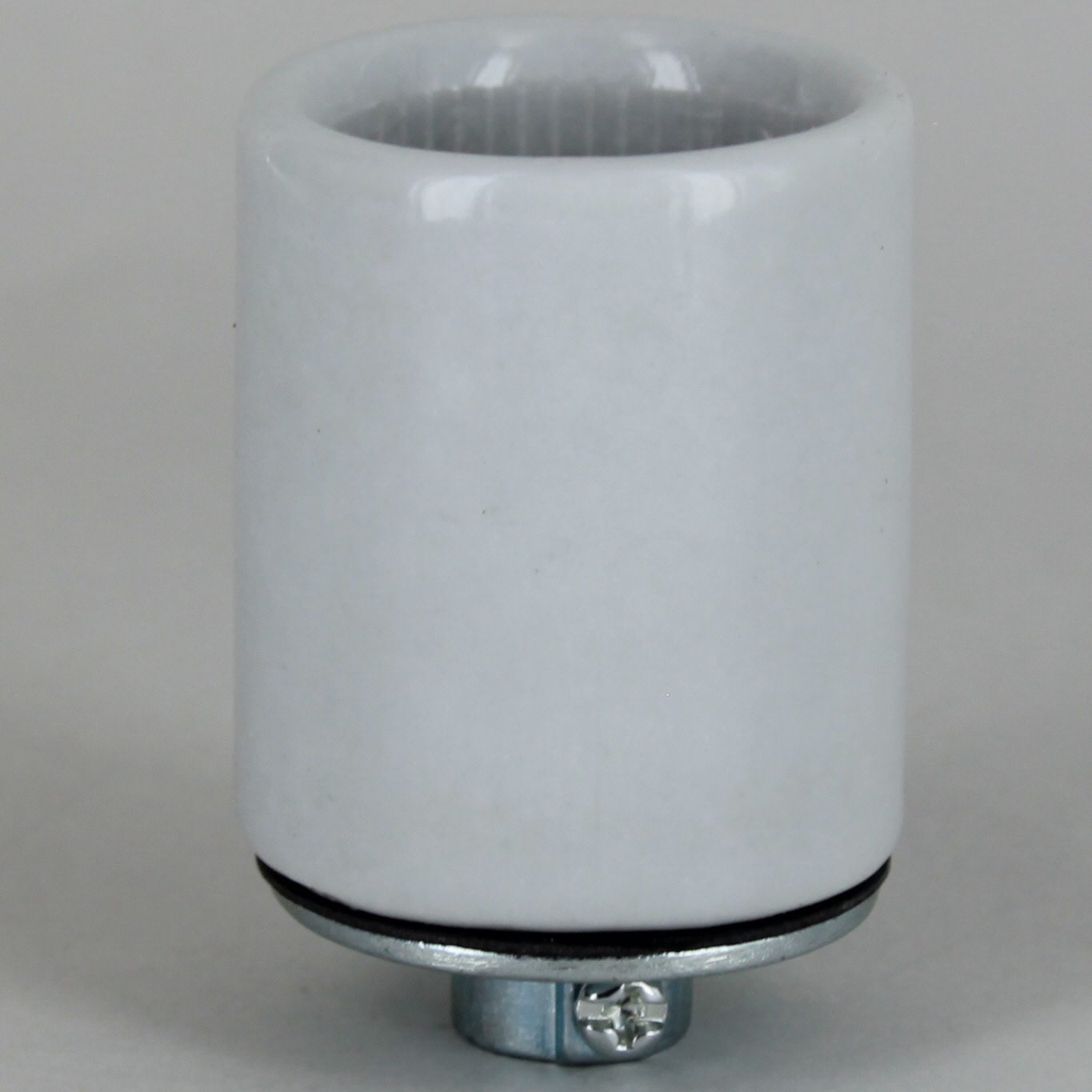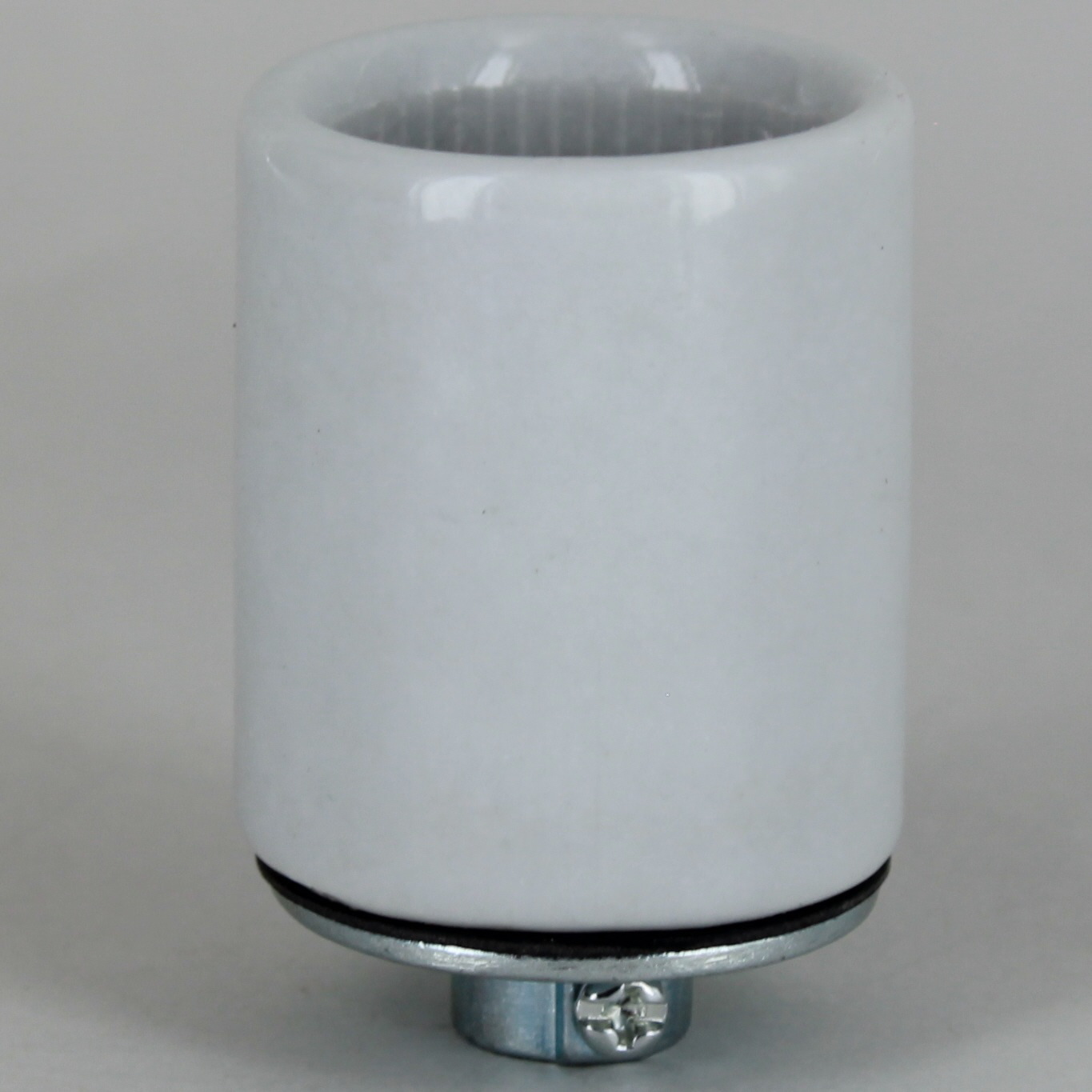Answer
May 03, 2024 - 01:44 PM
Using a porcelain lamp socket with a damp location rating offers several advantages, particularly in environments where moisture or humidity may be present:
Durability: Porcelain is a highly durable material, resistant to cracking, chipping, and corrosion. This durability ensures the socket can withstand the conditions in damp locations without deteriorating over time.
Moisture Resistance: Porcelain is non-porous, meaning it does not absorb moisture. This makes it ideal for use in damp locations where water or humidity may be present, as it reduces the risk of electrical shorts or corrosion compared to other materials that may be susceptible to moisture damage.
Heat Resistance: Porcelain has excellent heat resistance properties, allowing it to withstand high temperatures without deforming or melting. This is especially important in lighting fixtures where bulbs generate heat, ensuring safe operation over extended periods.
Electrical Insulation: Porcelain is a good electrical insulator, providing a safe barrier between the electrical wiring and surrounding environment. This helps prevent electrical shocks and ensures the integrity of the electrical connections within the socket.
Fire Safety: Due to its high heat resistance and non-flammable nature, porcelain contributes to fire safety in lighting fixtures. It reduces the risk of fire hazards that may arise from overheating or electrical faults.
Compatibility: Porcelain lamp sockets are compatible with a wide range of bulb types and wattages, making them versatile for various lighting applications.
Longevity: Porcelain lamp sockets have a long lifespan, offering reliable performance over many years of use. This longevity can result in cost savings over time by reducing the need for frequent replacements.
Overall, using a porcelain lamp socket with a damp location rating provides peace of mind, ensuring safe and reliable lighting in areas where moisture or humidity may pose a risk to other types of sockets.
Durability: Porcelain is a highly durable material, resistant to cracking, chipping, and corrosion. This durability ensures the socket can withstand the conditions in damp locations without deteriorating over time.
Moisture Resistance: Porcelain is non-porous, meaning it does not absorb moisture. This makes it ideal for use in damp locations where water or humidity may be present, as it reduces the risk of electrical shorts or corrosion compared to other materials that may be susceptible to moisture damage.
Heat Resistance: Porcelain has excellent heat resistance properties, allowing it to withstand high temperatures without deforming or melting. This is especially important in lighting fixtures where bulbs generate heat, ensuring safe operation over extended periods.
Electrical Insulation: Porcelain is a good electrical insulator, providing a safe barrier between the electrical wiring and surrounding environment. This helps prevent electrical shocks and ensures the integrity of the electrical connections within the socket.
Fire Safety: Due to its high heat resistance and non-flammable nature, porcelain contributes to fire safety in lighting fixtures. It reduces the risk of fire hazards that may arise from overheating or electrical faults.
Compatibility: Porcelain lamp sockets are compatible with a wide range of bulb types and wattages, making them versatile for various lighting applications.
Longevity: Porcelain lamp sockets have a long lifespan, offering reliable performance over many years of use. This longevity can result in cost savings over time by reducing the need for frequent replacements.
Overall, using a porcelain lamp socket with a damp location rating provides peace of mind, ensuring safe and reliable lighting in areas where moisture or humidity may pose a risk to other types of sockets.
 Grand Brass Lamp Parts, LLC
Grand Brass Lamp Parts, LLC

